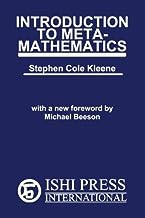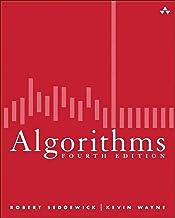01 January 2023
Books Read in 2023
List of books I’ve read in 2023
-
- 2023-12-18 Alexander Stepanov & Daniel Rose: From Mathematics to Generic Programming
- The same theme as Elements of Programming (EOP), but in a much more accessible style. In EOP I had to work hard to figure out why he’s saying things. Though for me that labour was valuable. Here things are much more explicitly stated. It was nice to see that the book covered things that I learned (from EOP, Euclid’s Elements, IM) and things that I have thought about. For example when I read the proof for the Bézout Identity I thought “hey, it’s not constructive” only to then read soon after in chapter 12.4 that “This is is an example of a nonconstructive proof”. I confess I skimmed over some of the math parts. For me the book was a really nice read.
-
- 2023-09-16 Lucian Boia: Primul Război Mondial, Controverse, paradoxuri, reinterpretări
- Sadly the history repeats 100 years later with the current war against Ukraine

-
- 2023-08-15 Stephen Cole Kleene: Introduction to Metamathematics (Ishi Press: 2009 reprint)
- This was a 3 years+ marathon, one of the most difficult books I’ve read. The reason I persisted is that it was also full of ideas. The book captures the developments in mathematical logic, particularly in the 1930s to 1950s, particularly with questions “What can be proved?”, “What can be calculated?”. I started reading it out of interest around Gödel’s incompleteness theorem. Compared with many other books, Kleene’s has rigour both in terms of proofs and in terms of philosophical ideas about the assumptions made (e.g. the clearest explanation of the intuitionist/constructivist ideas). That helped me be more rigorous myself and develop my own ideas about numbers, reasoning and computing. I wish the bound vs. free variables was better explained and that the choice of postulates was done earlier (rather than at the end of the book). 10 out of 10, though it’s not for everybody.

-
- 2023-08-11 R. Sedgewick and K. Wayne: Algorithms, online course on Coursera (Partt I and II)
- I enjoyed the online course (free on Coursera at the moment). It was doable in a few months of evening and occasional weekend study. It’s less verbose than the book, though the book might be interesting for details. It uses Java. At least it uses a sane subset of Java and warns about wrong choices of the language. I liked that it does not ignore engineering issues. Memorable ideas:
- the explanation how to design graph algorithms to not have to mutate the graph structure.
- “we thought we understood red black trees in the 70s”: related to the design of left leaning red black trees in the early 2000s so that deletion is easiser to implement
- the idea that approximating complexity often suffices, rather a complete precise description
- dealing with ideas of P vs. NP at the end of the course, the saner overview I’ve seen to date
- There are all sort of usages of algorithms, e.g. for a search that returns “found” even if the searched entry is not present (albeit with low probability) is acceptable for some problem domains (though totally unacceptable in other domains)
- I came to realise that “interview questions” are often taken from books like this and are of academical interest rather than applying to the job the interview is for
- the programming assignment were automatically graded. Did not accept anything other than 100 out of 100. Found that I was getting better at getting the max score due to familiarity with the expectations (e.g. work done in constructor, use of memoisation was expected to reach performance requirements) without really being a much better programmer.
- found that Java is poor of supporting abstractions compared with C++, resulting in a programming style that often used larger classes, but sometimes because of the constraints, I would make better choices e.g. two arrays instead of an array of structures resulting in better space (no padding) driven from attempts to avoid silly Java memory allocations
-
- 2023-04-12 Herbert A. Simon: Reason in Human Affairs
- Accidental repeat read of the book (first read it in 2018). This time I thought it was really great. 10 out of 10. It’s short: 3 chapters. The first chapter introduces a description of the process involving human rationality which is that, other than processes that we handle subconsciously like breathing, we handle problems one by one in isolation, we generate alternatives, we stop at the first acceptable alternative (not necessarily the optimal one). This is similar to Kahneman’s system 1 and 2 model. He’s got an idea that this approach works in a mainly empty word where most of the time we only need to deal with one problem. Chapter 2 talks more about evolution and how such way of reasoning arises. He spends some time on selfishness vs. altruism and hits quite a few points on “survival of the fitter, not the fittest”, on ecological niches, on the way variations are created. This chapter alone was more inspiring than the whole “The Selfish Gene” book. Chapter 3 looks at what it means for the way society is structured, politics, markets and what can be expected to be sorted by human reason.
-
- 2023-04-07 Philip A. Fisher: Common Stocks and Uncommon Profits and Other Writings
- Interesting book on investment. The introduction to the book by the son of the author is worth half of the book (in terms of giving an insight on how the author really was and the effects of old age and isolation). The interesting part in the book was the focus on long term company growth and the insights into the required qualitative investigation to identify such stocks, which is a good complement to Benjamin Graham’s “Intelligent Investor”.
-
- 2023-03-01 Nigel Warburton: A Little History of Philosophy
- It might not have been the author’s direct intention, but this (lovely) book made me realize how much of much acclaimed philosophers is full of gobbledygook and total failure of critical thinking.